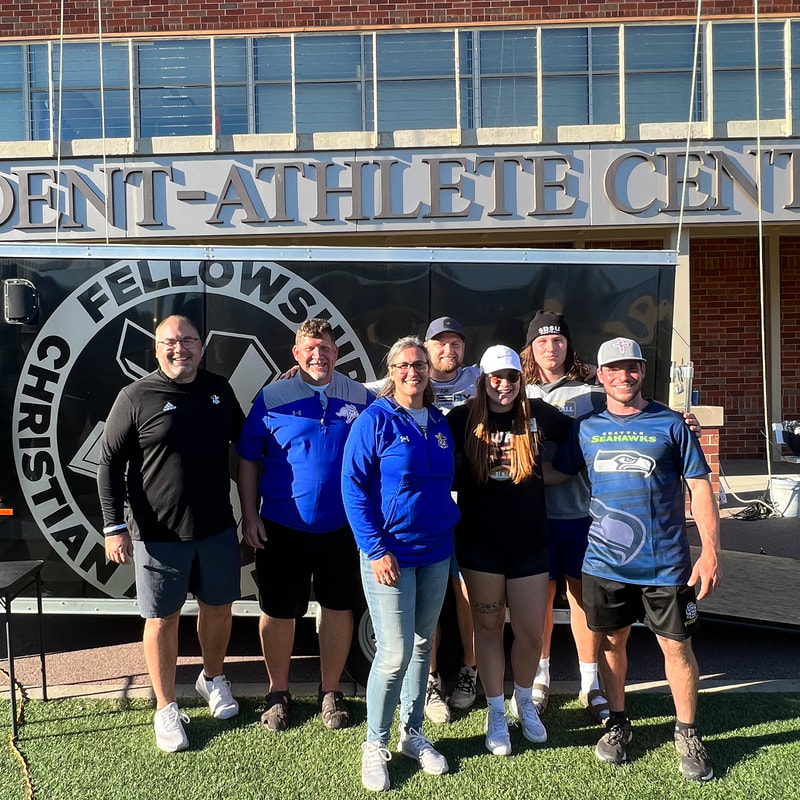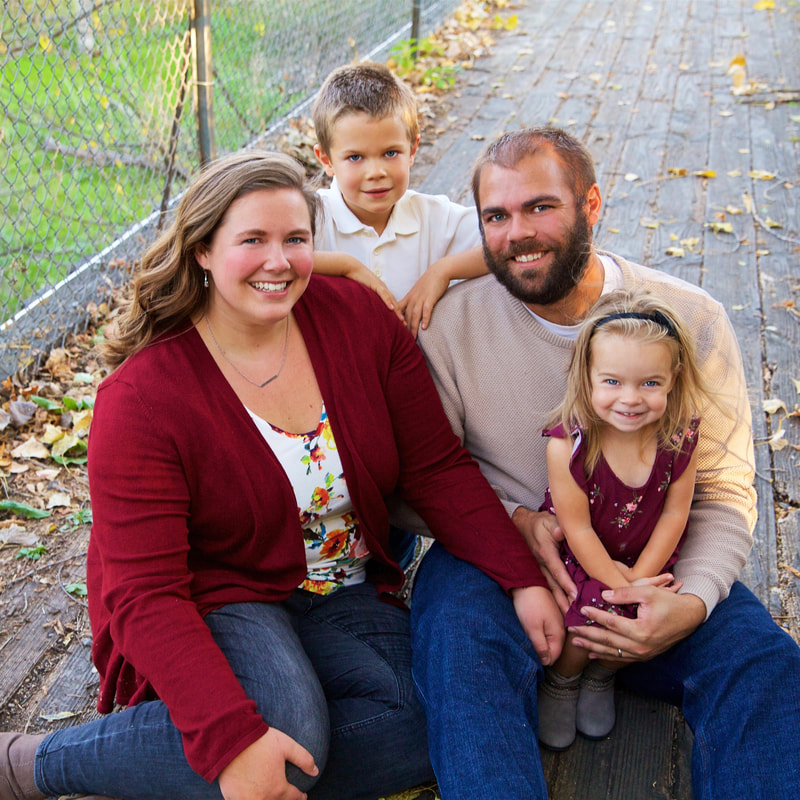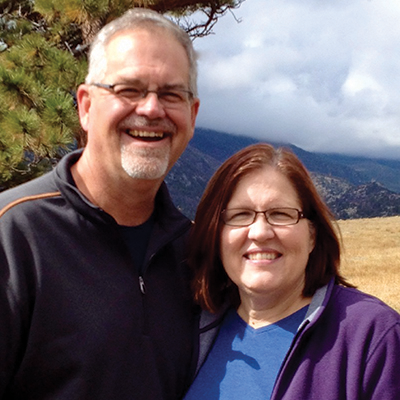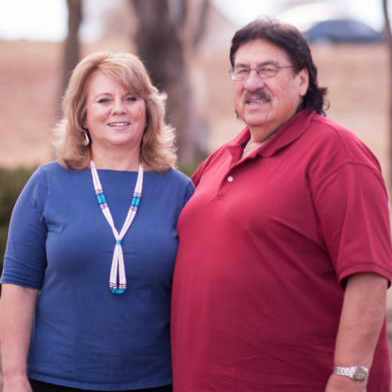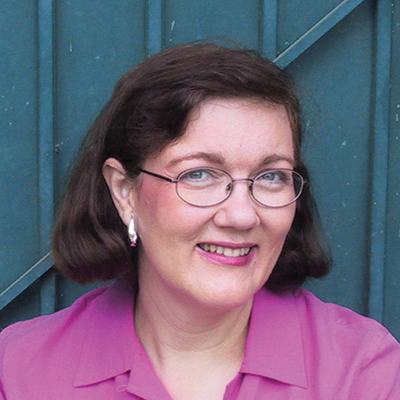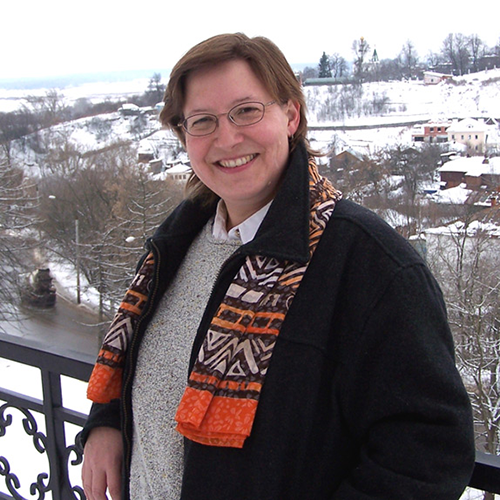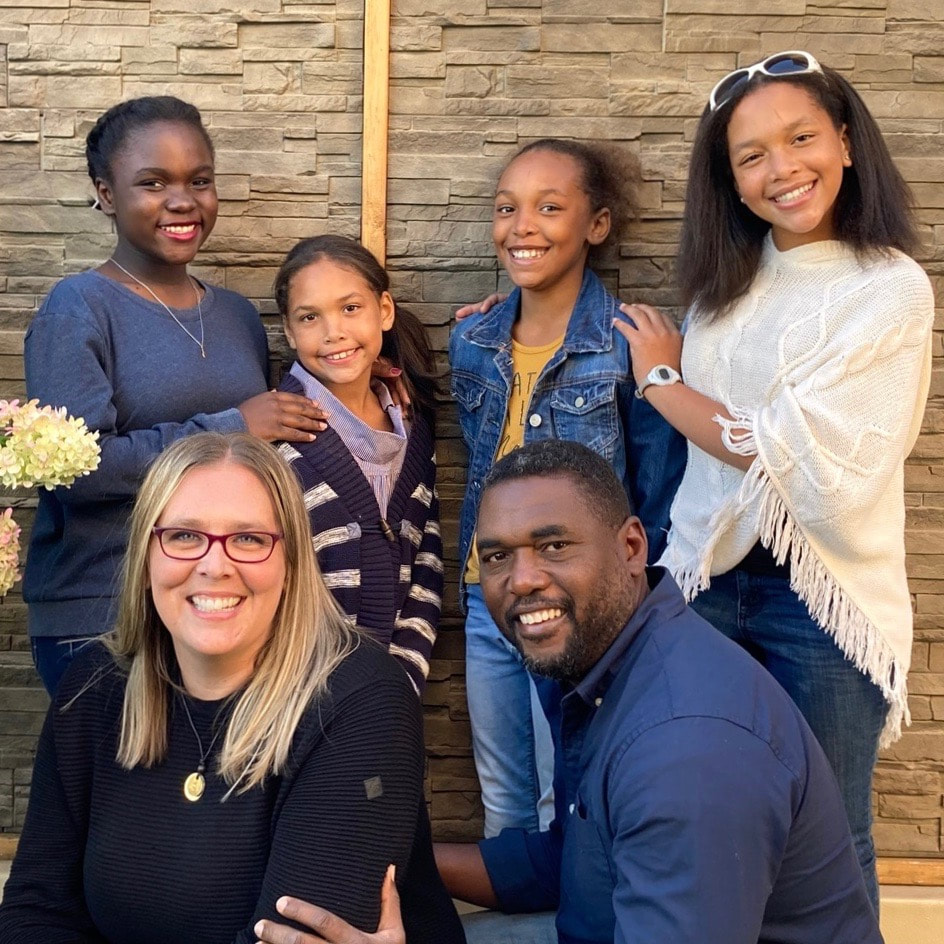Short-term mission opportunities are a great way for people to "give grace" away. Every year, GracePoint Wesleyan sends out several short-term missions teams -- both stateside and abroad. If you would like more information on being a part of one these teams, please contact Pastor Dave.
Missionaries & PROJECTS GracePoint Supports
GracePoint supports 10 missionaries, 2 schools and 4 partner organizations. The Global Outreach fund comes from tithes and offerings received in our general giving. You can give additionally to support missions by clicking HERE and designating "Missions Global Outreach."
HERE (LOCAL)
COLLEGIATE EVANGELISM
COLLEGIATE EVANGELISM
|
FCA Home Team
FCA SDSU |
John Florey
InterVarsity SDSU |
NEAR (NATIONAL)
NATIVE AMERICAN
NATIVE AMERICAN
FAR / HARD
|
Susan Hugghins
Mexico |
Kerry Pickard
Russia |
MUSLIM & REFUGEE MINISTRY Three of our missionaries serve in closed, or sensitive, countries and can't be listed here. |
PARTNERS/
PROJECTS
PROJECTS
|
Crater School
|
TJ is a “Brookings kid” and attended SDSU where he met his wife, Kristy. They have 2 children, Noah and Sidney.
After serving as a volunteer with Fellowship of Christian Athletes, TJ joined the staff in 2011. His first passion is Jesus Christ, but he also loves coaches and athletes. He is the Area Director for FCA, overseeing the ministry at SDSU, in Brookings and the surrounding area. He is also a Sports Chaplain at SDSU, and Team Chaplain for the SDSU Football team.
As chaplain, T.J. serves SDSU players and coaches, and their families in whatever capacity they need. Through leading Bible Studies for coaches and for athletes, pre-game chapels, coordinating the Jackrabbit FCA Huddle and one-on-one counseling, he desires to be a blessing to the Jackrabbits. The foundation is what he calls the “ministry of presence,” whether encouragement, counsel, or simply a sounding board, players, their parents, and coaches know that God has placed him here to be a resource for them.
What is your favorite thing about what you do? I really enjoy the one-on-one ministry that flows from a “ministry of presence". Through relationships I get the unique opportunity to take the gospel into locker rooms, fields and courts. I’m priviledged to share the Truth that our acceptence, worth, value and identity aren’t tied to performance, but rather something we can’t earn, which is a relationship with Christ. I love it when the light bulb goes on when that Truth is recognized. It’s liberating- it frees that person up to not feel that they have to compete for acceptance, but to know that they are already perfectly accepted and loved, they are free to compete with excellence.
TO LEARN MORE ABOUT FCA VISIT: www.jackrabbitFCA.org or their Facebook page.
After serving as a volunteer with Fellowship of Christian Athletes, TJ joined the staff in 2011. His first passion is Jesus Christ, but he also loves coaches and athletes. He is the Area Director for FCA, overseeing the ministry at SDSU, in Brookings and the surrounding area. He is also a Sports Chaplain at SDSU, and Team Chaplain for the SDSU Football team.
As chaplain, T.J. serves SDSU players and coaches, and their families in whatever capacity they need. Through leading Bible Studies for coaches and for athletes, pre-game chapels, coordinating the Jackrabbit FCA Huddle and one-on-one counseling, he desires to be a blessing to the Jackrabbits. The foundation is what he calls the “ministry of presence,” whether encouragement, counsel, or simply a sounding board, players, their parents, and coaches know that God has placed him here to be a resource for them.
What is your favorite thing about what you do? I really enjoy the one-on-one ministry that flows from a “ministry of presence". Through relationships I get the unique opportunity to take the gospel into locker rooms, fields and courts. I’m priviledged to share the Truth that our acceptence, worth, value and identity aren’t tied to performance, but rather something we can’t earn, which is a relationship with Christ. I love it when the light bulb goes on when that Truth is recognized. It’s liberating- it frees that person up to not feel that they have to compete for acceptance, but to know that they are already perfectly accepted and loved, they are free to compete with excellence.
TO LEARN MORE ABOUT FCA VISIT: www.jackrabbitFCA.org or their Facebook page.
John started working with InterVarsity at SDSU in December 2011. In September 2017, he began travelling 1 day a week to Vermillion to start an InterVarsity Chapter at USD. As John disciples student leaders on each of these campuses his prayer is that, as they are transformed by the Gospel, they would bring renewal to their campus and be equipped to be world changers. “My ultimate hope is that when students graduate they will have the confidence and tools to go into any setting (work, family, neighborhood, the local church, etc.) and know how to proclaim the Gospel, lead people to Christ, disciple others, and lead good Bible studies. The amount of time a person spends at college is very short but can be the most impactful 3-5 years of their lives. It is a time where they are making some of the biggest decisions of their life. I am so blessed and thankful to have this opportunity to work with students in this life changing time of their lives. Please pray that God would continue to raise up generations of world changers!”
What inspires you? One of the things that inspires me is to see people intentionally make an effort to cross cultures. God is a big God who has created all people in His image and when we build relationships with people of other ethnicities and cultures we gain a clearer picture of who God is.
What is something quirky about you? Nothing stresses me out faster than people filing their nails or being sticky. Mostly why I don’t eat pancakes very often.
What inspires you? One of the things that inspires me is to see people intentionally make an effort to cross cultures. God is a big God who has created all people in His image and when we build relationships with people of other ethnicities and cultures we gain a clearer picture of who God is.
What is something quirky about you? Nothing stresses me out faster than people filing their nails or being sticky. Mostly why I don’t eat pancakes very often.
Rick and Kindra have served with the college campus ministry of Cru for nearly 30 years. Their first involvement in campus ministry was actually through the CCF (College and Career Fellowship) ministry of Brookings Wesleyan Church when they were SDSU students in the early 1980s. Rick and Kindra joined Cru collegiate staff in the summer of 1988 and have spent their entire Cru career serving college students and collegiate staff.
Rick currently serves as the national co-director for People and Culture, helping to give leadership to staff in eight mid-west states, and is committed to helping create a culture of growing staff on healthy teams leading dynamic spiritual movements making global kingdom impact. Kindra serves as the national part-time staff field staff coordinator for the campus ministry, coaching part-time field staff coordinators, and coaching and caring for part-time field staff around the country.
Rick and Kindra have been married for 39 years (wedded at BWC in May of 1983), have five adult children and 2 grandchildren.
What inspires you? Being able to be part of something that is "bigger than I am". The opportunity to be part of building campus movements and building into lives of emerging leaders that will, by the grace of God, outlast (and exceed) me.
What is the strangest thing you have ever eaten? I was once served a "favorite" chicken dish by a student from East Asia - complete with the chicken feet front and center on the plate. I think I was too chicken to eat the feet.
Share a funny incident in your life. I took our kids to Lake Campbell fishing with a GPWC friend one time. I left something in the car and went back to retrieve it. As I was digging around in the van, I heard a voice behind me say something to the effect, "Excuse me, can I help you?" It turns out I was "digging around" in a van very similar to mine, but not mine, that had pulled up after our arrival and parked adjacent to us - and just happened to belong to the Brookings County sheriff.
Rick currently serves as the national co-director for People and Culture, helping to give leadership to staff in eight mid-west states, and is committed to helping create a culture of growing staff on healthy teams leading dynamic spiritual movements making global kingdom impact. Kindra serves as the national part-time staff field staff coordinator for the campus ministry, coaching part-time field staff coordinators, and coaching and caring for part-time field staff around the country.
Rick and Kindra have been married for 39 years (wedded at BWC in May of 1983), have five adult children and 2 grandchildren.
What inspires you? Being able to be part of something that is "bigger than I am". The opportunity to be part of building campus movements and building into lives of emerging leaders that will, by the grace of God, outlast (and exceed) me.
What is the strangest thing you have ever eaten? I was once served a "favorite" chicken dish by a student from East Asia - complete with the chicken feet front and center on the plate. I think I was too chicken to eat the feet.
Share a funny incident in your life. I took our kids to Lake Campbell fishing with a GPWC friend one time. I left something in the car and went back to retrieve it. As I was digging around in the van, I heard a voice behind me say something to the effect, "Excuse me, can I help you?" It turns out I was "digging around" in a van very similar to mine, but not mine, that had pulled up after our arrival and parked adjacent to us - and just happened to belong to the Brookings County sheriff.
Rev. Larry Salway is the director of Wesleyan Native Ministries (WNM). Rev. Salway continues to be the lead pastor of He Sapa New Life (Wesleyan Church) and lead the vast outreach of that church to the many Lakota communities in the Dakota region. Salway, a Lakota Native, records He Sapa services in his native language and forwards the DVDs to house churches on the Pine Ridge, Rosebud, and Cheyenne River reservations. From the responses of house church leaders and others, Rev. Salway estimates that over 6,000 people view the sermons each week—making the extended He Sapa Church one of the largest congregations in The Wesleyan Church.
What is a cultural custom you had to learn? Language and cultural nuances, such as don't give a firm handshake (it must be weak), and don't look elders in the eye
What do you love about where you live? The Lakota people are so warm and friendly! And I love their sense of humor
Who is a hero of yours? Persecuted Christians
What do you like to read? Books on justice
What is the one quality you most admire in other people? Integrity and a sense of humor
What is a cultural custom you had to learn? Language and cultural nuances, such as don't give a firm handshake (it must be weak), and don't look elders in the eye
What do you love about where you live? The Lakota people are so warm and friendly! And I love their sense of humor
Who is a hero of yours? Persecuted Christians
What do you like to read? Books on justice
What is the one quality you most admire in other people? Integrity and a sense of humor
Carl & Maya Gilles have served with Global Partners since 2007 and started in Haiti in 2009. Their role as missionaries with Global Partners (part of The Wesleyan Church) has recently changed.
What is your new assignment?
Ministry to the French-speaking countries. It can be summed up in a few words: Mobilization, church development, missional expansion, theological education & leadership development and networking. In short, we work with the leaders of Haiti, DRC, Cameroon, Rwanda, Burundi, Chad and Burkina Faso where the Wesleyan church already has a presence.
It's also our desire to expand our Wesleyan presence in the following countries: Canada, French Islands (Guadeloupe, Martinique, St-Martins, etc), French Europe and other French countries in Africa.
Will you still be working with Haiti?
Absolutely! We will continue to coach the national church in becoming an Established National Conference. We will also facilitate the partnership with Kingswood University and equip the Mission Board to give leadership to the Haitian missionaries abroad.
Where will you be located?
Quebec City. Did you know that Quebec is considered the largest unreached people group in North America, with an estimate of about 99.3% of the population not Evangelical? This is a strategic place to start making disciples... and hopefully mobilize missionaries for the French-speaking nations.
We need a ton of prayer support! We admit, this role is a big undertaking, but we know we are not alone in this journey! We have the leading of the Sprit and of course, Global Partners' leadership and people like you who wish to see God's kingdom come to earth.
You can stay informed of the Gilles' work by following them on Facebook. Also, Carl & Maya send out weekly emails with prayer requests and updates. If you’d like to receive these updates, please email us and we’ll make sure you are added to their mailing list.
What is your new assignment?
Ministry to the French-speaking countries. It can be summed up in a few words: Mobilization, church development, missional expansion, theological education & leadership development and networking. In short, we work with the leaders of Haiti, DRC, Cameroon, Rwanda, Burundi, Chad and Burkina Faso where the Wesleyan church already has a presence.
It's also our desire to expand our Wesleyan presence in the following countries: Canada, French Islands (Guadeloupe, Martinique, St-Martins, etc), French Europe and other French countries in Africa.
Will you still be working with Haiti?
Absolutely! We will continue to coach the national church in becoming an Established National Conference. We will also facilitate the partnership with Kingswood University and equip the Mission Board to give leadership to the Haitian missionaries abroad.
Where will you be located?
Quebec City. Did you know that Quebec is considered the largest unreached people group in North America, with an estimate of about 99.3% of the population not Evangelical? This is a strategic place to start making disciples... and hopefully mobilize missionaries for the French-speaking nations.
We need a ton of prayer support! We admit, this role is a big undertaking, but we know we are not alone in this journey! We have the leading of the Sprit and of course, Global Partners' leadership and people like you who wish to see God's kingdom come to earth.
You can stay informed of the Gilles' work by following them on Facebook. Also, Carl & Maya send out weekly emails with prayer requests and updates. If you’d like to receive these updates, please email us and we’ll make sure you are added to their mailing list.
GracePoint is Supporting the Amplified Leaders Project Through Global Partners
Through the Amplified Leaders program, Global Partners is equipping pastors globally to multiply disciples and churches. 282 pastors seeking training have been identified in Nepal, Cambodia, Mongolia, Mozambique, Zambia, Sierra Leone, Ghana, Uganda, and El Salvador.
Through the giving of GracePointers, we have so far been able to support one leader pursuing ministry and will continue to support more leaders this year, as funds are available. The cost is $1800/person for 3 years of pastoral training. Could you imagine your entire college education costing this little? And yet it is still out of reach for most of these untrained pastors. Help us bridge the gap for those who are unable to afford the education they desire. Would you consider joining us in raising up leaders around the world to see the Gospel Amplified?
The Global Outreach funds come from tithes and offerings received in our general giving. You can give additionally to support missions by clicking HERE and designating "Missions Global Outreach." Thank you for being a part of this adventure!
Through the giving of GracePointers, we have so far been able to support one leader pursuing ministry and will continue to support more leaders this year, as funds are available. The cost is $1800/person for 3 years of pastoral training. Could you imagine your entire college education costing this little? And yet it is still out of reach for most of these untrained pastors. Help us bridge the gap for those who are unable to afford the education they desire. Would you consider joining us in raising up leaders around the world to see the Gospel Amplified?
The Global Outreach funds come from tithes and offerings received in our general giving. You can give additionally to support missions by clicking HERE and designating "Missions Global Outreach." Thank you for being a part of this adventure!
Jonathan is a missionary kid, born and raised in Nairobi, Kenya, with a lifelong desire to serve in missions as a pilot. Rachel grew up just across the Minnesota border from Brookings and attended GracePoint (then Brookings Wesleyan) as a child. After graduating from Bethel College in St. Paul, MN, Jonathan met Rachel while she was attending North Central University in Minneapolis, MN and they married in 2002. They moved to Nairobi in 2011 to serve with AIM AIR. In 2015 they moved to Arua, Uganda, to be closer to where the airplanes were needed most in South Sudan, Eastern DRC, and Central African Republic. In April 2017 they began working with Samaritan’s Purse to help establish an aviation base in Arua. They have two children, Miriam and Max.
What do you love about where you live? We love the small town feel of Arua. It is so very different and refreshing compared to the big city of Nairobi. There is fresh air, very little traffic, lots of space for the kids to play and the ability to walk and bike places.
What is a cultural custom you had to learn? We are learning the greetings and basics of the Lugbara language here. We are also getting used to different foods to cook with. Cassava, sweet potatoes and peanuts are the common foods here.
What do you miss about home? People! It is so hard to be far away from family and friends.
What do you love about where you live? We love the small town feel of Arua. It is so very different and refreshing compared to the big city of Nairobi. There is fresh air, very little traffic, lots of space for the kids to play and the ability to walk and bike places.
What is a cultural custom you had to learn? We are learning the greetings and basics of the Lugbara language here. We are also getting used to different foods to cook with. Cassava, sweet potatoes and peanuts are the common foods here.
What do you miss about home? People! It is so hard to be far away from family and friends.
Susan Hugghins is from the Brookings area and is in full-time ministry as a Bible translator among the Mixtec people of Oaxaca, Mexico. Susan’s sending agency, Wycliffe Bible Translators, is a non-denominational organization. Wycliffe partners with many organizations around the world to see Bible translation completed.
Today, there are more than 1,600 languages still waiting for a translation project to begin, but many are in areas that are hard to reach. Susan is currently in the ‘Americas’ region. About 1,000 of the world’s languages are spoken around the Americas, which covers 11 different time zones. In this region, more than 300 language projects have already been completed and less than 100 languages are still waiting for Bible translation to begin.
What are some of the cultural customs you have had to learn?
Sleeping on woven palm mats on the floor.
To eat a bowl of food using tortillas, without silverware (and trying to not let it dribble down your arms).
How to use the traditional black shawl – as a sunbonnet, for carrying loads on the back, to sit on the ground, etc. It is a very versatile accessory!
If one hasn’t had tortillas or some sort of corn derivative (tamales, hominy, tostadas, etc.), then it doesn’t really count as a meal (all 3 meals a day).
Bread is a party food.
Not to ask so many questions. They observe or ask someone later. They don't even ask someone point blank what their name is or where they are from. It is considered nosy, impertinent or even downright rude to ask too many questions. I have had to learn to bite my tongue.
What is the strangest thing you have ever eaten?
Toasted grasshoppers (anything tastes good toasted with chili and lemon, and wrapped in a tortilla so you can’t see it)
Ant stew (delicious!)
Wasp grubs (considered a delicacy)
What do you love about where you live?
How resourceful and adaptable the people are.
Bougainvillea bushes which bloom year-round.
Arriving somewhere half an hour late and being on time, as usually the event hasn't started yet.
What do you miss about "home"?
The four seasons; there are only 2, maybe 3 seasons in Oaxaca (dry season and rainy season), and it can get chilly in the winter, especially in unheated homes.
Spring flowers, such as tulips, daffodils, lilacs, lily-of-the-valley, peonies, etc. Pansies and petunias don't do well in Oaxaca.
Doors and windows being sealed, to keep out the cold and the cockroaches.
Being able to drink tap water, brush one's teeth straight from the tap, and rinse fruits and vegetables right under the tap, then eat them raw.
What’s something quirky about you?
I am more outgoing in Spanish than in English.
Today, there are more than 1,600 languages still waiting for a translation project to begin, but many are in areas that are hard to reach. Susan is currently in the ‘Americas’ region. About 1,000 of the world’s languages are spoken around the Americas, which covers 11 different time zones. In this region, more than 300 language projects have already been completed and less than 100 languages are still waiting for Bible translation to begin.
What are some of the cultural customs you have had to learn?
Sleeping on woven palm mats on the floor.
To eat a bowl of food using tortillas, without silverware (and trying to not let it dribble down your arms).
How to use the traditional black shawl – as a sunbonnet, for carrying loads on the back, to sit on the ground, etc. It is a very versatile accessory!
If one hasn’t had tortillas or some sort of corn derivative (tamales, hominy, tostadas, etc.), then it doesn’t really count as a meal (all 3 meals a day).
Bread is a party food.
Not to ask so many questions. They observe or ask someone later. They don't even ask someone point blank what their name is or where they are from. It is considered nosy, impertinent or even downright rude to ask too many questions. I have had to learn to bite my tongue.
What is the strangest thing you have ever eaten?
Toasted grasshoppers (anything tastes good toasted with chili and lemon, and wrapped in a tortilla so you can’t see it)
Ant stew (delicious!)
Wasp grubs (considered a delicacy)
What do you love about where you live?
How resourceful and adaptable the people are.
Bougainvillea bushes which bloom year-round.
Arriving somewhere half an hour late and being on time, as usually the event hasn't started yet.
What do you miss about "home"?
The four seasons; there are only 2, maybe 3 seasons in Oaxaca (dry season and rainy season), and it can get chilly in the winter, especially in unheated homes.
Spring flowers, such as tulips, daffodils, lilacs, lily-of-the-valley, peonies, etc. Pansies and petunias don't do well in Oaxaca.
Doors and windows being sealed, to keep out the cold and the cockroaches.
Being able to drink tap water, brush one's teeth straight from the tap, and rinse fruits and vegetables right under the tap, then eat them raw.
What’s something quirky about you?
I am more outgoing in Spanish than in English.
Kerry grew up attending Brookings Wesleyan Church (now GracePoint). When she was in the third grade, she accepted Jesus Christ as her personal savior while attending an after-school Bible club. She is a Bartlesville Wesleyan College (now Oklahoma Wesleyan University) graduate who earned a B.S. degree in elementary education.
At the age of 11, Kerry became interested in missions while on a trip to Haiti with her parents, Jim & Sylvia Pickard. "God just continued to bring this idea [of missions] back to me. I still had some doubts, so I tried it for one year. This was where God confirmed that He could indeed use me if I was willing to go." Kerry has served in Vladimir, Russia, since 2003 as a career missionary and in Nizhny Novgorod, Russia, from 1998-1999 as a GO-Net volunteer. For three years (1994-1997), she worked with CoMission in Ryazan, Russia.
Kerry desires to demonstrate in a practical way Christ's love to a hurting world. Her goal is to help people see that God calls us not to just believe but to be transformed into Christlikeness.
What is the strangest thing you have ever eaten? Here they have a dish made from unflavored gelatin. Oftentimes they put meat and raw cucumbers in it. I once had it made with fish and so, of course, the gelatin was fish flavored!
What is a cultural custom you had to learn? When you are at someone's house and they offer you seconds, even if you want it, it is polite to say no the first time. Then you can say yes the second time they offer. However, if you don’t want it, you have to say no three times. After the third offer and refusal, they will stop. They can be very insistent and if you don’t know this “three times” rule, you end up eating a lot more than you want! Of course, I also had to learn to offer my guests seconds more than once because even if they said no the first time, they might actually want more.
What do you love about where you live? I love that people here take friendship very seriously. They won’t have that many people they call “friends” and aren’t quick to use that word but to the ones they do call friends, they go very deep and are very loyal. I have been blessed to be able to build several of those types of friendships here.
What do you miss about "home"? One thing I always miss about “home” is that no matter how long I live here or how well I know the language or culture, I am always aware that I am a foreigner. And while that isn’t necessarily a bad thing or dangerous thing, the feeling is always here. When I arrive in the States, I no longer am a foreigner but a native. That is a nice feeling.
What do you do for fun? I love to hunt mushrooms in the forest, a big activity here in the late summer/early fall. I wait all year for mushroom season! So for the rest of the year, I like to ride bike, take pictures, watch American Football, read, and cook/bake.
At the age of 11, Kerry became interested in missions while on a trip to Haiti with her parents, Jim & Sylvia Pickard. "God just continued to bring this idea [of missions] back to me. I still had some doubts, so I tried it for one year. This was where God confirmed that He could indeed use me if I was willing to go." Kerry has served in Vladimir, Russia, since 2003 as a career missionary and in Nizhny Novgorod, Russia, from 1998-1999 as a GO-Net volunteer. For three years (1994-1997), she worked with CoMission in Ryazan, Russia.
Kerry desires to demonstrate in a practical way Christ's love to a hurting world. Her goal is to help people see that God calls us not to just believe but to be transformed into Christlikeness.
What is the strangest thing you have ever eaten? Here they have a dish made from unflavored gelatin. Oftentimes they put meat and raw cucumbers in it. I once had it made with fish and so, of course, the gelatin was fish flavored!
What is a cultural custom you had to learn? When you are at someone's house and they offer you seconds, even if you want it, it is polite to say no the first time. Then you can say yes the second time they offer. However, if you don’t want it, you have to say no three times. After the third offer and refusal, they will stop. They can be very insistent and if you don’t know this “three times” rule, you end up eating a lot more than you want! Of course, I also had to learn to offer my guests seconds more than once because even if they said no the first time, they might actually want more.
What do you love about where you live? I love that people here take friendship very seriously. They won’t have that many people they call “friends” and aren’t quick to use that word but to the ones they do call friends, they go very deep and are very loyal. I have been blessed to be able to build several of those types of friendships here.
What do you miss about "home"? One thing I always miss about “home” is that no matter how long I live here or how well I know the language or culture, I am always aware that I am a foreigner. And while that isn’t necessarily a bad thing or dangerous thing, the feeling is always here. When I arrive in the States, I no longer am a foreigner but a native. That is a nice feeling.
What do you do for fun? I love to hunt mushrooms in the forest, a big activity here in the late summer/early fall. I wait all year for mushroom season! So for the rest of the year, I like to ride bike, take pictures, watch American Football, read, and cook/bake.

